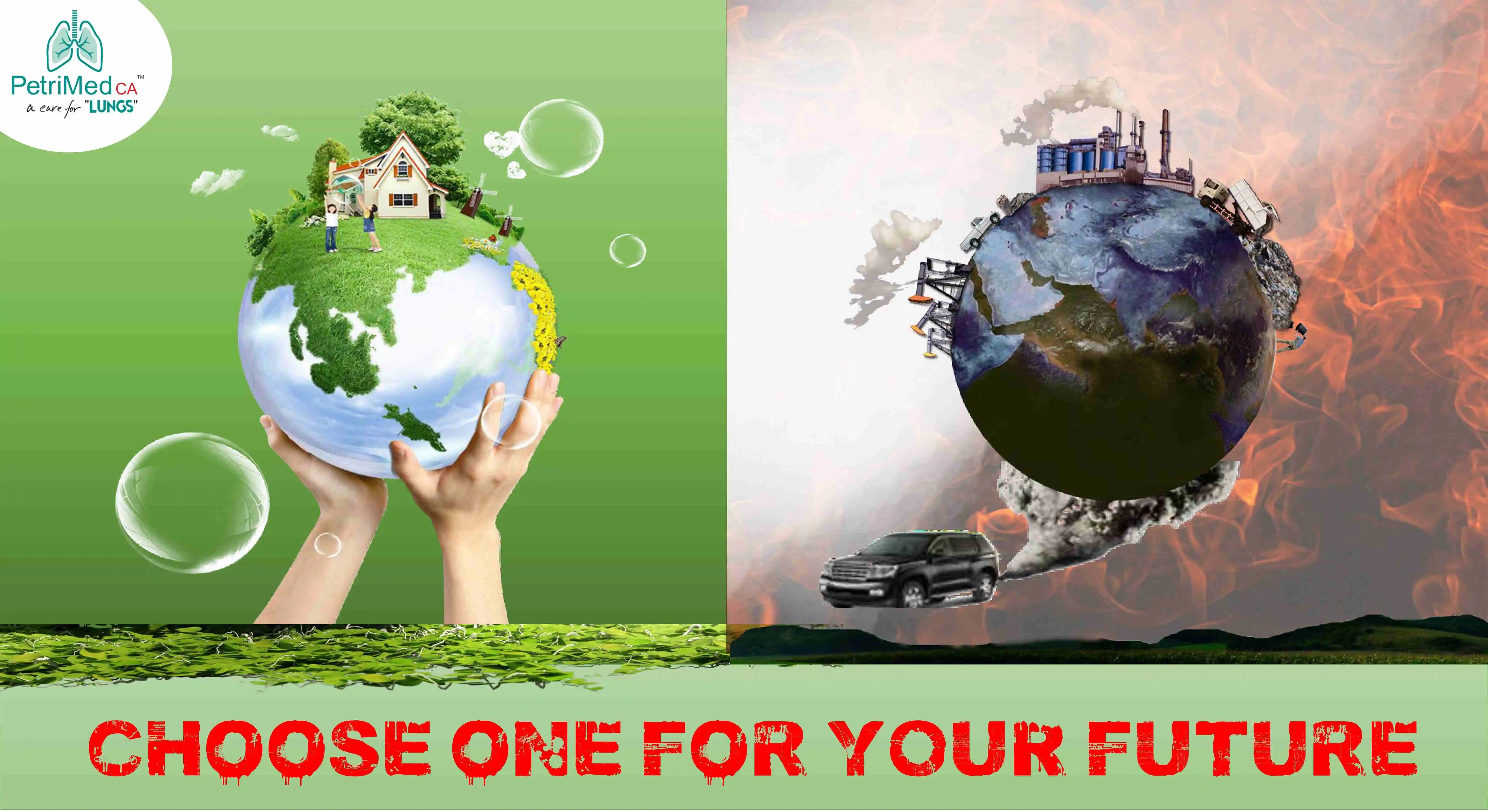Air Pollution and Practical Ways to Curb Its Impact on Human Health
18 Apr 2023
When public hear pollution, most individuals do not think of air pollution right away. Air pollution is something we should all be thinking about more and make sure we understand what it is, what could happen because of air pollution.
Air pollution is any chemical, physical or biological agent that modifies the natural characteristics of the atmosphere. A lot of different substances can affect the air and cause air pollution. Cars, smoking, burning coal and burning fossil fuels are examples of outdoor air pollution. Smoking, open fire indoor cooking, CO from furnaces and other chemicals from different products we use in our homes, places of work, etc.
Air pollution is a bigger problem than many people think. A lot of people do not know how much it affects people and how the pollution affects someone’s health. China is one of the top countries with air pollution issues and smog issues. In China, about 1.6 million people die from air pollution a year, that is about 4,400 a day. In the world, it is estimated that 4.9 million people die from air pollution each year.
Effects Of Air pollution
It is impossible to describe the whole extent of potential and actual damage caused by all forms of air pollution. But here are the main consequences:
• ON THE ENVIRONMENT
Air pollution has a major impact on the process of plant evolution by preventing photosynthesis in many cases, with serious consequences for the purification of the air we breathe. It also contributes to the formation of acid rain, atmospheric precipitations in the form of rain, frost, snow or fog, which are released during the combustion of fossil fuels and transformed by contact with water steam in the atmosphere.
• GLOBAL WARMING
On top of that, air pollution is a major contributor to global warming and climate change. In fact, the abundance of carbon dioxide in the air is one of the causes of the greenhouse effect. Normally, the presence of greenhouse gases should be beneficial for the planet because they absorb the infra-red radiation produced by the surface of the earth. But the excessive concentration of these gases in the atmosphere is the cause of the recent climate change.
• ON HUMAN HEALTH
Our continual exposure to air pollutants is responsible for the deterioration of human health. Air pollution is indeed a significant risk factor for human health conditions, causing allergies, respiratory and cardiovascular diseases as well as lung damage
Preventing air pollution is something that more people should be trying to do and more people should be informing people about. Regulation, car pool, mass public transportation and switching to clean energy are all the ways to prevent air pollution. Regulating what we put into the air and how much of a substance we put in the air can make a big difference. Carpooling and mass public transportation can decrease the amount of air pollution we cause from cars, buses, etc. Also, switching to clean energy can help us put healthier substances into the air and make our air cleaner and healthier to breath in.
Without preventing air pollution, we would continue to obviously pollute our air but that would cause us to be breathing in unhealthy air and potentially even air that could be very hazardous for us to go outside for long periods of time and breath in. I do not think anyone wants to get to the point in life that we must wear certain clothes or masks to go outside so we can breathe in healthy air to live. We need to take preventive measures when dealing with air pollution or any type of pollution for that matter so we can live the best lives we can on earth.
There are ways to prevent, control and eventually reduce air pollution:
• Renewable fuel and clean energy production
The most basic solution for air pollution is to move away from fossil fuels, replacing them with alternative energies like solar, wind and geothermal
• Energy conservation and efficiency
Producing clean energy is crucial. But equally important is to reduce our consumption of energy by adopting responsible habits and using more efficient devices.
• Eco-friendly transportation
Shifting to electric vehicles and hydrogen vehicles, and promoting shared mobility (i.e carpooling, and public transports) could reduce air pollution.
Green building From planning to demolition, green building aims to create environmentally responsible and resource-efficient structures to reduce their carbon footprint.
• Invest in Medical-Grade Air Purification System
Common indoor pollutants include dust, smoke, pet dander, and volatile organic compounds (VOCs). One effective way to reduce indoor pollution is by using an advanced air purification system like PetriMed CA APS 400.
Unlike an ordinary air purifier, APS 400 is a complete system that comes with designed efficiency of 99.999% to capture pollutants from the air in a room. It works through a multi-stage purification process by drawing air into the unit and filtering it through a series of filters—i.e., pre-filter, HEPA H14, pre-activated carbon zeolite, along with UV-C and ioniser. The filters trap pollutants such as dust, pollen, and smoke, and release clean air back into the room.
Conclusion:
Preventing air pollution is a crucial task that requires the participation of everyone. We can start by making simple lifestyle changes like reducing the use of personal vehicles, using eco-friendly products, and promoting the use of renewable energy sources.
Additionally, we can also consider investing in an air purifier to ensure that the air we breathe indoors is free from pollutants. By implementing these measures, we can collectively reduce the impact of air pollution on our health and the environment, and make the world a cleaner and safer place to live in for ourselves and future generations.
Remember, every little effort counts in the fight against air pollution.
